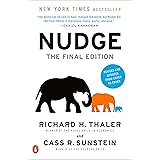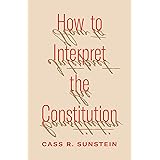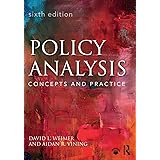
Baixe o app Kindle gratuito e comece a ler livros do Kindle instantaneamente em seu smartphone, tablet ou computador - sem a necessidade de um dispositivo Kindle.
Leia instantaneamente em seu navegador com o Kindle para internet.
Usando a câmera do seu celular, digitalize o código abaixo e baixe o app Kindle.

OK
Imagem não disponível
Cor:
-

-
-
- Para ver este vídeo faça o download Flash Player
 Amostra Amostra
Amostra Amostra 


The Cost–Benefit Revolution Capa dura – 7 setembro 2018
Opinions on government policies vary widely. Some people feel passionately about the child obesity epidemic and support government regulation of sugary drinks. Others argue that people should be able to eat and drink whatever they like. Some people are alarmed about climate change and favor aggressive government intervention. Others don't feel the need for any sort of climate regulation. In The Cost-Benefit Revolution, Cass Sunstein argues our major disagreements really involve facts, not values. It follows that government policy should not be based on public opinion, intuitions, or pressure from interest groups, but on numbers—meaning careful consideration of costs and benefits. Will a policy save one life, or one thousand lives? Will it impose costs on consumers, and if so, will the costs be high or negligible? Will it hurt workers and small businesses, and, if so, precisely how much?
As the Obama administration's “regulatory czar,” Sunstein knows his subject in both theory and practice. Drawing on behavioral economics and his well-known emphasis on “nudging,” he celebrates the cost-benefit revolution in policy making, tracing its defining moments in the Reagan, Clinton, and Obama administrations (and pondering its uncertain future in the Trump administration). He acknowledges that public officials often lack information about costs and benefits, and outlines state-of-the-art techniques for acquiring that information. Policies should make people's lives better. Quantitative cost-benefit analysis, Sunstein argues, is the best available method for making this happen—even if, in the future, new measures of human well-being, also explored in this book, may be better still.
- Número de páginas288 páginas
- IdiomaInglês
- EditoraMIT Press
- Data da publicação7 setembro 2018
- Idade de leitura18 anos e acima
- Dimensões16.03 x 2.44 x 23.65 cm
- ISBN-109780262038140
- ISBN-13978-0262038140
Clientes que compraram este item também compraram
Descrição do produto
Sobre o Autor
Detalhes do produto
- ASIN : 0262038145
- Editora : MIT Press (7 setembro 2018)
- Idioma : Inglês
- Capa dura : 288 páginas
- ISBN-10 : 9780262038140
- ISBN-13 : 978-0262038140
- Idade de leitura : 18 anos e acima
- Dimensões : 16.03 x 2.44 x 23.65 cm
- Ranking dos mais vendidos: Nº 336,216 em Livros (Conheça o Top 100 na categoria Livros)
- Nº 13,670 em Importados de Administração, Negócios e Economia
- Avaliações dos clientes:
Sobre o autor

Descubra mais livros do autor, veja autores semelhantes, leia blogs de autores e muito mais
Avaliações de clientes
As avaliações de clientes, incluindo as avaliações do produto por estrelas, ajudam os clientes a saberem mais sobre o produto e a decidirem se é o produto certo para eles.
Para calcular a classificação geral por estrelas e o detalhamento percentual por estrelas, não usamos uma média simples. Em vez disso, nosso sistema considera coisas como o quão recente é uma avaliação e se o avaliador comprou o produto na Amazon. As avaliações também são analisadas para verificar a confiabilidade.
Saiba mais sobre como as avaliações de clientes funcionam na AmazonPrincipais avaliações de outros países
費用便益分析(CBA)は政策や規制の意思決定に革命をもたらしてきたが、本書によれば、CBAの課題として、分配、厚生(ウェルフェア)、知識という三つがあるという。単なる学者ではなくオバマ政権や弁護士としての実務経験も踏まえて、CBAが科学的で客観的なのだと上から目線で言うのではなく、色々課題があることを認めつつCBAをよくしていこうという知的態度に賛同できる。
ツイッターで飛び交う情報に条件反射するのでなく、CBA的なフレームワークでみんなが議論できるようになれればと切に感じる。そのとき、あなたのことを無視するつもりはないですよ、というリスペクトの意思表示をお互いにしたり、失業や幸せや格差など、今のCBAでは表現できない価値=広義のウェルフェアがあることを認め合ったりすることが大切だと思う。
学術論文をベースに書かれており、下記のような章構成。ただし学術論文の固さはなく、英語は比較的読みやすい。第3章は、サンスティーン『命の価値』(原著2014年、邦訳2017年)の記述と重なるので、そちらを日本語で読んでもよい。『命の価値』と違って、本書はトランプ政権の時代に書かれており、規制を極力減らそうとするトランプへの冷静な評価もある。なお、ほぼすべてアメリカの事例に基づいた議論。
1章 テクノクラートの勝利(レーガン政権以降、アメリカの歴代政権でCBAは取り入れられ進化してきた)
2章 外国語(CBAというツールは、外国語のようなもの。行動経済学が指摘するように、直感だけでリスクの絡む意思決定をしてしまいがち。そこでCBAを使えば、対象と一定の距離をとれる。ちなみに外国語で考えごとをすると、ロジカルに意思決定できる!)
3章 支払い意思額と生命価値(規制のCBAをするには、統計的生命価値(VSL)がいくらかを決める必要があるが、課題もある)
4章 厚生:一番重要な価値(CBAは、厚生=ウェルフェア、つまり失業の痛みとか尊厳とか、さらには幸福や人生の目的まで含めた本当の善を実現できないかもしれない。でもまずはCBAから出発して、最終的に厚生分析を目指すという態度が重要)
5章 知識問題(中央政府が情報を持っているわけではないというハイエクの批判に、CBAがどう答えるか?知識や情報が足りないからと言ってCBAをやらないのではなく、できる範囲でやっていくことが重要。たとえばパブコメ、ランダム化比較試験、過去の振り返りCBA、ほぼリアルタイムでの「測って反応」戦略などが有効)
6章 道徳的コミットメント(道徳的な支払い意思もCBAに含めるべき)
7章 ラベル表示の義務付けについて(情報開示に伴う時間や手間や感情のコストを上回る便益はあるか?損益分岐分析が役立つ)
8章 裁判所の役割(裁判所は政策を正当化する判断をしていると見られることもあるが、総じて、きちんと費用と便益を見ている)
9章 プライバシーと国民の安全(この二つをバランスさせるCBAとは?)
10章 言論の自由(これまでCBAは使われてこなかったし、権利の概念が重要かもしれない分野。でもテロ攻撃の危険などを考えると、CBA的考え方もある程度は必要)
Cass R. Sunstein is a Professor of Law at Harvard Law school. In the first term of the Obama administration, Prof. Sunstein served as Administrator of the White House Office of Information and Regulatory Affairs. His new book, The Cost-Benefit Revolution is a 'must-have' for anyone who needs to know how the regulatory framework of our country operates. The subject matter of this study is what might be called the 'fine print' that is printed on the labels of the things that we buy; how we spend our money; how we save our money or invested in pension plans, investment accounts, or even to the purchase of lottery tickets. It involves calculations of the costs involved, or the benefits to be obtained, in every form of action over which government at all levels of our society has jurisdiction to approve, to deny, to promote, or to restrict, based upon the calculated or perceived benefits or concomitant risks that people face when spending money, purchasing goods and services, or anything else they do within the framework of society.
The problem with accurately assessing those perceived risks and benefits is difficult, and often speculative, as gazing into the future is hardly an exact science. In the past, much of what has passed for cost-benefit analysis is really wishful thinking, based upon hopes, investments, or other imagined happenings, that might, or might not, become realized.
Within a regulatory framework, those charged with creating rules for producers and consumers of economic goods need to be as careful as possible to keep their assessment sober minded and realistic. In matters of economic regulation, primarily, the law requires that regulators have as close to a crystal ball as science and mathematics will allow them to claim. Anything found to be substantially less efficient than that standard can be attacked in the courts as being 'arbitrary, capricious, or an abuse of regulatory discretion'. On the other hand, those concerned with preserving economic liberty at the expense of the safety and well-being of others, have often attacked regulatory schemes for any purpose as being violations of natural law and the economic rights under the Constitution. The truth, as usual, lies somewhere in between.
Regulation of society and its economic engines, whether by trade, agriculture, exploitation of natural resources, and so on, go back to the furthest reaches of civilization, whether in ancient Egypt under the Pharaohs, under the Roman Empire, in medieval Europe, and up to our modern day. Many of these regulations are to be found in the religious texts of every social group we can point to. Regulation is part of being civilized; and in every case, the benefits and burdens of regulation are assessed by those in power to provide a balanced framework that allows life to continue within society on a day-to-day basis, because when things get out of balance, what follows next is frequently disease, and destruction.
The fundamental rule is that regulation is needed because individuals and households are frequently unable to make reasoned judgments for themselves about what is good and wholesome, things they acquire from others over which they have no control as to their origin or production, or the prices they must pay in order to acquire those goods and services. It also works the other way, as producers want fair prices for their produce, and they want to be assured that they are not being taken advantage of by those whose services are needed in order to get the fruit of their labors to market, i.e., transportation costs to transport freight from one point to another, and so on.
Professor Sunstein is consummately knowledgeable about both the rationale for regulation, how it comes about, how it is applied, and how it may be challenged, and on what grounds. Better than that, his book is eminently readable.
My only concern with this otherwise splendid work is that it does not address several of the most salient political and economic issues that we have faced since Professor Sunstein last served in government. In the Obama administration, Sunstein was among kindred spirits who understood the value of a regulatory framework that kept everything moving smoothly and maximize benefit to all parties involved. Nobody got everything they wanted; but most got what they needed to enable them to continue on.
Then came the Trump administration, with its Opera Buffa character and ideological bent to obliterate as much of our country's regulatory framework as it could do in the time available. In a very real sense, this was a 'Revolt of the Have-Nots'. The basic theme was that government regulation, while allocating costs and benefits between producers and consumers, sellers and buyers, made things just too difficult and expensive all the way around. For large numbers of people who did not have much to begin with, who did not like environmental regulation because it got in the way of what they wanted to do, when, and how, to people whose lives are closer to subsistence living, often on fixed income, the sophistication of the regulatory environment, as related by Professor Sunstein in considerable detail, seem to be at polar opposites for simple folk who wanted immediate solutions that they could understand (and would not have to pay for) to be implemented immediately. And Donald J. Trump promised them everything, even as it was obvious that not much of it was capable of implementation; and that the real beneficiaries were really wealthy investors and business owners whose business interests would prosper mightily if most forms of regulation were eliminated, if possible, were otherwise minimized. Two years into the Trump administration. We are now just finding out just how costly that effort is going to be.
With that in mind, my only criticism of Professor Sunstein's otherwise excellent effort would have to be that he was insufficiently forward-looking in assessing the manifest deficiencies in our country's regulatory environment when it comes to the Internet and how it is been co-opted by moneyed interests, and indeed foreign adversaries, as exemplified in the 2016 Presidential Election. Compared with the straitlaced consumer products market, with its focus on such things as rearward-viewing backup cameras on motor vehicles so that drivers will not run over small children while backing out of their driveways, the matter in which we regulate companies doing business on the Internet whose primary focus appears to be opinion making; data massaging; history and news fabrication; and other forms of illicit activity involving compromising our election processes need to be examined. Maybe this is not Professor Sunstein's forte; but if were going to be talking about distribution of benefits and burdens and their consequences, with or without regulation, information and privacy concerns have to be somewhere near the top of the list for the coming decades. The honesty and integrity of our politics, and indeed our public life depend mightily on how we handle this sort of regulatory framework.
The problem here is that benefits and costs as discrete objects to be considered are too large to be considered, except as metaphors for describing national destiny. The Internet has become a virtual world of its own. Our thinking about how to manage it must begin with the fact that the Internet itself, unlike persons and businesses that are normally the objects of governmental regulation are merely bit players in this drama. What we have is an entity that expanding far faster than we can respond to it, and much of what goes on lies beyond our jurisdictional boundaries. We are dealing with entities that affect how we govern ourselves; manage our resources; live our lives, including how we identify ourselves to others, manage our personal privacy, and decide to whom and under what circumstances we interact with others. It matters that the Internet is scalable, because as it grew in size and complexity, by a process we call 'emergence' we are faced with phenomena that both elude our understanding and defy our attempts to control them. Companies like Facebook and Amazon have within the past two decades grown so large and powerful as to become quasi-sovereigns within their own virtual worlds in which they operate. And, as they grow in size and wealth, they will inevitably challenge temporal authority based on the influence that they wield in cyberspace. What they lack in formal, traditional political legitimacy they make up for in their economic clout. They command no army or police force, yet those who use them voluntarily submit to their demands, and yet it is only these past two years that our national leaders are awakened to the danger we face. The President's party denied that anything wrong had occurred; and now, those who would try to add up and compare respective benefits and costs of this debacle would not know where to begin. Amazon is an economic colossus beyond anything antitrust advocates have ever faced. Apple, with its iPhone and array of supporting products is no more in control of its future on the Internet as the smallest retail website. Facebook, the poster-child for social media, finds itself under scrutiny for allowing agents of the Russian Military Intelligence to purchase advertising on Facebook's platform, paid for in Rubles, no less; and no one there raised an eyebrow about what was going on. It betrays a level of arrogance and incompetence that no writer of satirical fiction in recent memory, even at their most cynical worst could have imagined.
It was not so many years ago that broadcast companies were required to provide 'equal time' to provide people on all sides of an issue to be heard. It was part of their broadcast license requirements; and, consequently, people back then were better informed, even as there was less time spent on air making it happen. The Equal Time rule went away during the Reagan administration.
One of the lasting results of the Great Depression was a Security and Exchange Commission and a Treasury Department that cast a watchful eye on the banking industry's involvement with investment promoters looking to capitalize on making a killing on the housing market, with the least possible risk to themselves. Until the Carter administration, home-ownership was largely restricted to middle income families and above. Civil rights activists and their supporters in Congress and in the administration were adamant about extending the financial benefits of home ownership to families who could not afford what were then fairly strict requirements for obtaining a home loan mortgage. Veterans could do it through the Veterans Administration, but that required years of military service, and even then, not everybody qualified due to income requirements.
Then there was the so-called 'stagflation' that occurred during the administration of Jimmy Carter, when home mortgage interest rates went sky high. It was about that time that the chief source of home mortgage money came from Savings and Loan associations and credit unions, that then sold their loans to Fannie Mae, Ginnie Mae, and Freddie Mac, federally sponsored home loan guarantors and purchasers of those notes so that the Savings and Loan associations and credit unions could continue lending to their members. Some of us may remember the debacle involving the Savings and Loan industry when it crashed in the early 1980s when the mismatch between what those institutions were paying their depositors in interest, and what they were getting as returns on investment with depositors money, could no longer be sustained.
I will not repeat here the sad story of what actually happened, except to say that the home loan industry became wildly over-extended, in part because a lot of overseas money was looking for a place to invest in as growth opportunities at home seemed to be drying up. Those who have seen that excellent movie, "The Big Short" know how the movie ends up, with small groups of savvy investors figuring out a way to bet against the big banks holding risky mortgage paper, and making a killing.
It seems wildly unfair for me to attack Professor Sunstein's highly informative book, and the thoughtful analysis he puts into it, by judging him on the book that he did not write! Except, this is now 2019, and the damage I am describing occurred a decade ago in what was then a regulatory environment gone south. Compare with what happened, then and since, all that other stuff is like a group of school kids haggling over who takes what from a found bag of candy. Sort of like talking about urban planning in Pompeii in the years immediately before Mount Vesuvius exploded.
The question is now what can Professor Sunstein tell us that will help us now in our hour of need. We are stuck with Donald J. Trump, at least for another year or two, but the damage he wrought will outlive all of us. What can Professor Sunstein suggest that might ameliorate that carnage. I will be listening with bated breath.









